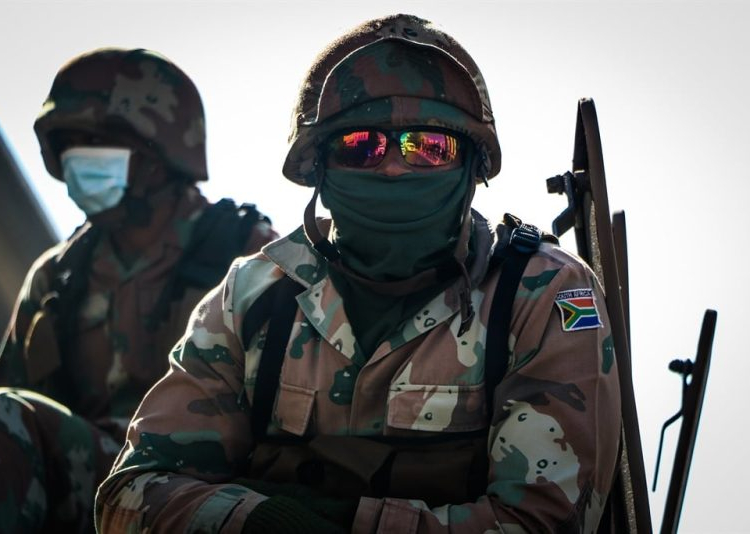Soldier Salary in South Africa 2024

The average yearly salary for soldiers in South Africa is R207,000, with a wide range from R122,000 to R376,000.
Supplementary income, such as bonuses, can range from R2,000 to R51,000, while commissions can contribute a maximum of R16,000.
As a result, the entire salary ranges from R119,000 to R409,000 every year.
Salaries in the military vary based on experience. Soldiers in the early stages of their career (1-4 years) earn around R193,000, while those in the mid-level range (5-9 years) get roughly R204,000. More experienced individuals with 10-19 years of service may expect greater salary.
Duties And Responsibilities of a Soldier in South Africa
- Combat Readiness: Soldiers must maintain peak physical fitness, ensuring they are prepared for any operational deployment.
- Discipline: Upholding military regulations and conduct standards is crucial to fostering a cohesive and effective unit.
- Training: Constantly honing skills through rigorous training exercises, soldiers stay proficient in various combat techniques.
- Equipment Maintenance: Ensuring weapons and gear are in optimal condition is vital for mission success and personal safety.
- Mission Execution: Executing assigned tasks with precision, soldiers contribute to the overall success of military operations.
- Security Operations: Soldiers play a pivotal role in safeguarding national borders and key assets, deterring potential threats.
- Team Collaboration: Working seamlessly with fellow soldiers fosters a strong and unified force.
- Leadership: Soldiers at all levels must display leadership qualities, taking charge when necessary and guiding their peers.
- Adaptability: In dynamic situations, soldiers must quickly adjust strategies and tactics to overcome challenges.
- Integrity: Upholding moral and ethical principles is fundamental to building trust within the unit and maintaining a positive image.
- First Aid: Proficiency in basic medical care enables soldiers to provide immediate assistance in emergencies.
- Community Engagement: Soldiers contribute to national development by engaging positively with local communities, and fostering goodwill and understanding.
Education And Qualifications of a Soldier in South Africa
Basic Military Training: Soldiers undergo intensive and demanding initial training, with a strong emphasis on discipline, physical fitness, and mastery of weapons.
Educational Background: A prerequisite for this position is a Grade 12 education, which guarantees a fundamental level of academic proficiency.
Specialized training courses are provided to soldiers based on their assigned roles, which may include infantry, artillery, or engineering.
Combat Readiness: Ongoing training and practice sessions equip soldiers to handle different combat situations, refining their abilities in strategic operations.
Leadership Training: Soldiers undergo a series of progressive leadership courses to prepare them for leadership positions.
Weapon Handling: A soldier’s efficacy on the field depends heavily on their ability to proficiently handle and maintain a wide range of weapons.
First Aid and Medical Training: To provide first aid in combat scenarios, soldiers undergo basic medical training.
Map Reading and Navigation: In order to move around the battlefield effectively during military operations, one must possess these two skills.
Communication Skills: Soldiers get training in the proficient use of radio and other communication technologies to enhance their ability to effectively communicate.
Training in Survival: To adapt to different environments, soldiers acquire survival skills, such as wilderness survival.
Counter-Insurgency Training: Specialized instruction prepares soldiers to effectively confront insurgency and non-traditional threats.
Training for International Deployments and Peacekeeping: Soldiers receive training that focuses on conflict resolution and cultural sensitivity in preparation for international deployments and peacekeeping missions.
Factors That Influence a Soldier Salary in South Africa
1. Rank and Service Length: The primary determinant is the individual’s rank. Generals receive much higher salaries compared to privates.
Furthermore, the duration of service also impacts the income of employees, since those with more experience are eligible for wage increments or promotions that result in higher pay.
2. Specialization and Qualifications: Specific areas of expertise such as pilots, doctors, or engineers receive greater compensation as a result of their advanced technical abilities and training.
In addition, having credentials such as advanced degrees or language skills might lead to higher salaries.
3. Operational Deployment and Allowances: Soldiers who are assigned to active duty or stationed in hazardous places are eligible to earn operational allowances in addition to their regular salary.
The allowances differ based on the mission, duration, and amount of danger.
4. Location and Cost of Living: The location of duty also impacts salary. When working in remote regions where the cost of living is greater, individuals are often provided with cost-of-living allowances to guarantee that they are fairly compensated.
5. Marital Status and Dependents: Soldiers who are married and have dependents generally get family allowances to provide financial assistance for their homes.
The amount of these allowances may rise in proportion to the number of dependents.
6. Duration of Service Benefits: Once troops have served for a specific term, they become entitled to supplementary benefits such as housing allowances, education grants, and retirement pensions. These advantages enhance their overall financial stability.
7. Collective Bargaining and Government Decisions: Unions that represent troops typically engage in collective bargaining to determine military compensation scales.
Moreover, the compensation levels might be influenced by government policies regarding defense funding and economic issues.
Related Post
Credit: www.Newshub360.net
